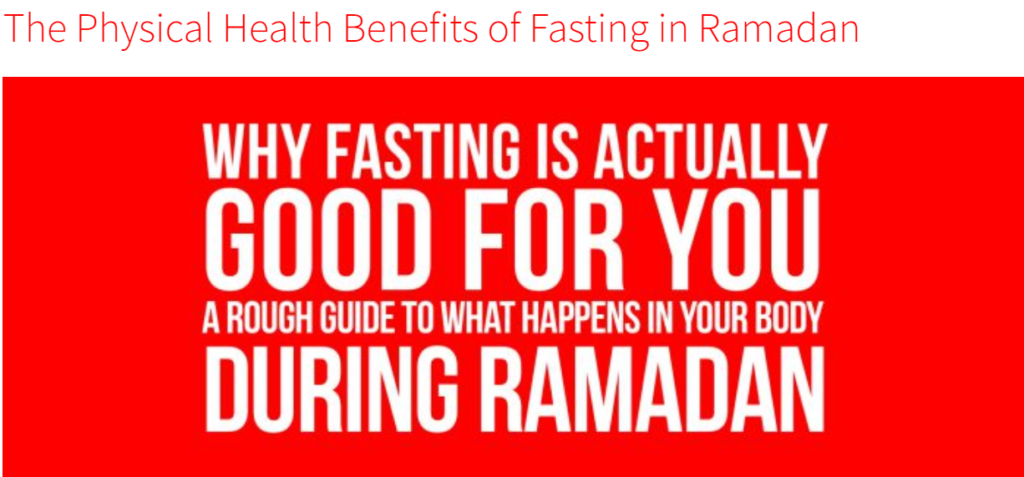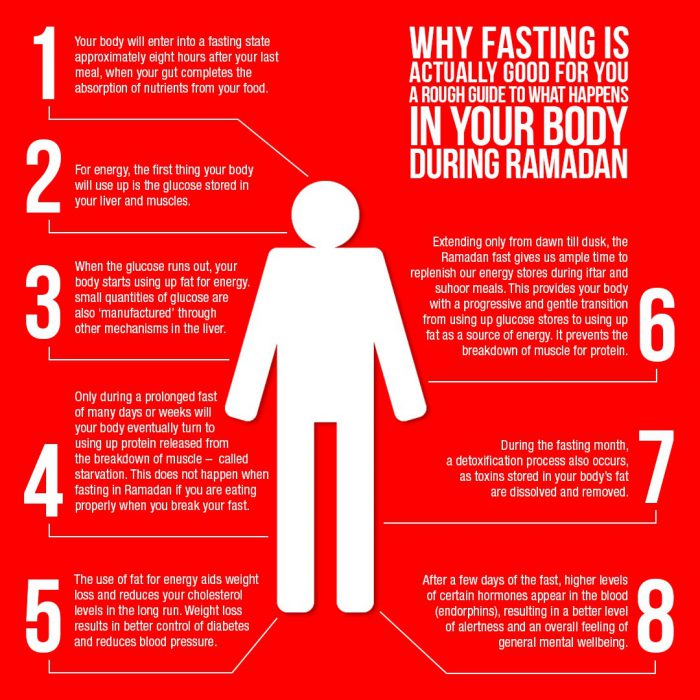𝐓𝐡𝐞 𝐖𝐢𝐬𝐝𝐨𝐦 𝐨𝐟 𝐅𝐚𝐬𝐭𝐢𝐧𝐠 𝐭𝐡𝐞 𝐌𝐨𝐧𝐭𝐡 𝐨𝐟 𝐑𝐚𝐦𝐚𝐝𝐚𝐧
Mohamad Mostafa Nassar
Twitter@NassarMohamadMR

Allah has mentioned the reason and wisdom behind His enjoining of fasting upon us, as He says:
“O you who believe! Observing As-Sawm (the fasting) is prescribed for you as it was prescribed for those before you, that you may become Al-Muttaqoon (the pious)” [al-Baqarah 2:183]
𝐄𝐯𝐞𝐧 𝐏𝐫𝐞𝐯𝐢𝐨𝐮𝐬 𝐏𝐫𝐨𝐩𝐡𝐞𝐭𝐬 𝐚𝐬 𝐬𝐭𝐚𝐭𝐞𝐝 𝐢𝐧 𝐭𝐡𝐞 𝐁𝐢𝐛𝐥𝐞
· Prophet Moses fasted (Exodus 34:28
· Israel fasted (1 Samuel 7:6)
· Prophet Elijah fasted (1 Kings 19:8)
· Prophet Ezra fasted (Ezra 10:6)
· prophet Daniel fasted (Daniel 10:3)
· Jesus fasted (Mathew 4:1-2)
· Even the false apostle Paul claimed to fast as per (Acts 9:9)
· Leaders in the church at Antioch fasted (Acts 13:3)
· The false apostle Paul is claiming to have been fasting and Barnabas fasted (Acts 27:33) etc.
Fasting is a means of attaining Taqwa (piety, being conscious of Allah), and Taqwa means doing that which Allah has enjoined and avoiding that which He has forbidden.
Fasting is one of the greatest means of helping a person to fulfill the commands of Islam.
The scholars (may Allah have mercy on them) have mentioned some of the reasons why fasting is prescribed, all of which are characteristics of Taqwa, but there is nothing wrong with quoting them here, to draw the attention of fasting people to them and make them keen to attain them.
𝐇𝐨𝐰 𝐭𝐨 𝐏𝐫𝐞𝐩𝐚𝐫𝐞 𝐟𝐨𝐫 𝐅𝐚𝐬𝐭𝐢𝐧𝐠 𝐑𝐚𝐦𝐚𝐝𝐚𝐧
𝐒𝐨𝐦𝐞 𝐨𝐟 𝐭𝐡𝐞 𝐫𝐞𝐚𝐬𝐨𝐧𝐬 𝐛𝐞𝐡𝐢𝐧𝐝 𝐟𝐚𝐬𝐭𝐢𝐧𝐠 𝐚𝐫𝐞:
1 – Fasting is a means that makes us appreciate and give thanks for pleasures. Fasting means giving up eating, drinking, and intercourse, which are among the greatest pleasures. By giving them up for a short time, we begin to appreciate their value. Because the blessings of Allah are not recognized, when you abstain from them, you begin to recognize them, so this motivates you to be grateful for them.
2 – Fasting is a means of giving up haram things, because if a person can give up halal things in order to please Allah and for fear of His painful torment, then he will be more likely to refrain from haram things. So, fasting is a means of avoiding the things that Allah has forbidden.
3 – Fasting enables us to control our desires, because when a person is full his desires grow, but if he is hungry then his desire becomes weak. Hence the Prophet (peace and blessings of Allah be upon him) said: “O young men! Whoever among you can afford to get married, let him do so, for it is more effective in lowering the gaze and protecting one’s chastity. Whoever cannot do that, let him fast, for it will be a shield for him.”
4 – Fasting makes us feel compassion and empathy towards the poor because when the fasting person tastes the pain of hunger for a while, he remembers those who are in this situation all the time, so he will hasten to do acts of kindness to them and show compassion towards them. So, fasting is a means of feeling empathy for the poor.
5 – Fasting humiliates and weakens the Shaytan; it weakens the effects of his whispers (waswaas) on a person and reduces his sins. That is because the Shaytan “flows through the son of Adam like blood” as the Prophet (peace and blessings of Allah be upon him) said but fasting narrows the passages through which the Shaytan flows, so his influence grows less.
Shaykh al-Islam said in Majmoo’ al-Fatāwá, 25/246
Undoubtedly blood is created from food and drink, so when a person eats and drinks, the passages through which the devil’s flow – which is the blood – become wide. But if a person fasts, the passages through which the devil’s flow become narrow, so hearts are motivated to do good deeds, and to give up evil deeds.
6 – The fasting person is training himself to remember that Allah is always watching, so he gives up the things that he desires even though he is able to take them because he knows that Allah can see him.
7 – Fasting means developing an attitude of asceticism towards this world and its desires and seeking that which is with Allah.
8 – It makes the Muslim get used to doing many acts of worship because the fasting person usually does more acts of worship and gets used to that.
These are some of the reasons why fasting is enjoined. We ask Allah to help us to achieve them and to worship Him properly.
See Tafseer al-Sa’di, p. 116; Ibn al-Qayyim’s footnotes on al-Rawd al-Murabba’, 3/344; al-Mawsoo’ah al-Fiqhiyyah, 28/9.

As Muslims, we fast for Allah (swt) and therefore focus on the spiritual benefits of fasting. But fasting in Ramadan also has untold physical benefits. Recent scientific studies show that it can regenerate the immune system, and might even boost the cancer-curing effects of chemotherapy in cancer patients undergoing treatment!
While scientists continue to research the miraculous benefits of this ancient religious tradition, here is a guide to what happens in our bodies during the Holy Month; as well as the positive impact of fasting, provided it is done properly. Download it now and share it with your friends and family over social media. Let’s share the wisdom this Ramadan.

This infographic is based on information from the Ramadan Health Guide.
Can’t fast this Ramadan? Find out about paying Fidya and Kafara to make up for fasts you can’t keep. IKCA uses Fidya and Kafara donations to Feed Cancer Patients at Shaukat Khanum Hospital, who can’t afford the diet they need to recover.
Ramadan Mubarak
Allah Knows Best.
References:
Ramadan Survival Guide for Busy Muslims: Work, Study, Worship, and Energy Management
Reaping the Benefits of Ramadan
The End Of Ramadan, Not The End Of Good Deeds
Making Up The Missed Fasts Of Ramadan
What BREAKS the fast and what does NOT in the month of Ramadan in Islam
Blessings of the month of Ramadan
22 Common Ramadan Mistakes To Avoid
Al-Hassan, may God be pleased with him, was born in the middle of Ramadan, three years of the Hijra.